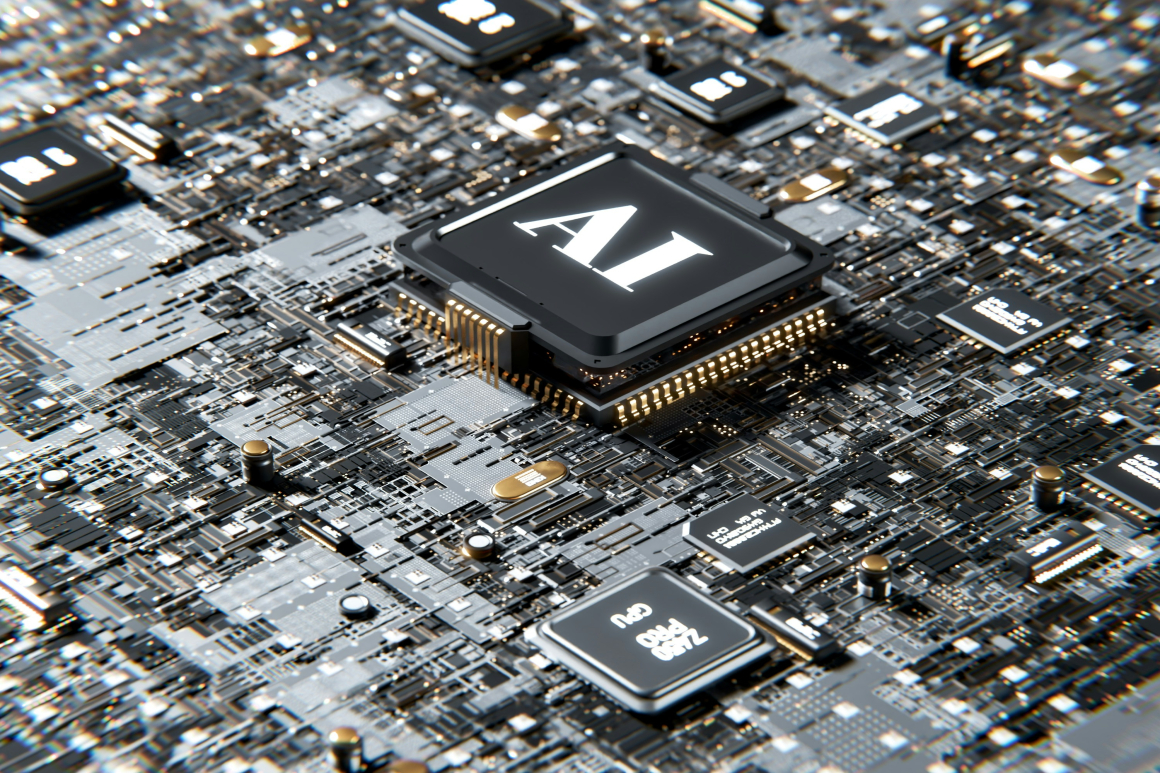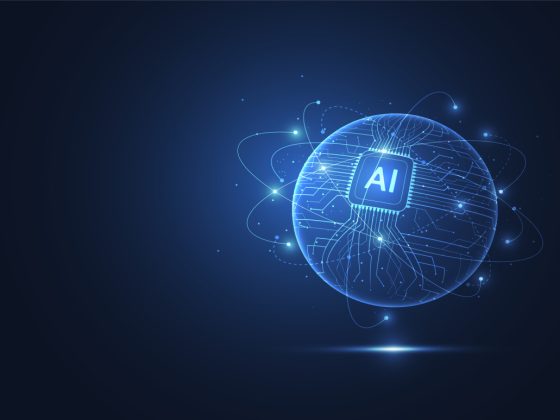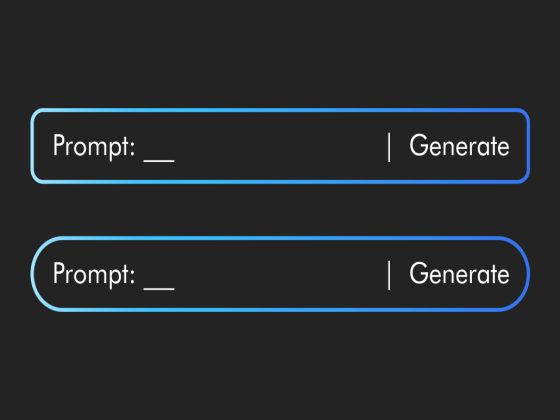High-Paying AI Jobs & Careers to Pursue in 2024 | VeriiPro
Artificial Intelligence (AI) has quickly become one of the biggest cornerstones of modern tech. The rapid developments in AI, along with its increased usage in various organizational business processes, have led to a surge in demand for skilled professionals who can leverage its power to solve complex problems and drive continuous innovation.
Recent studies show that the AI industry is now expected to create 9% of new jobs in the United States. Are you searching for well-paying careers in artificial intelligence? If you’re passionate about tech and looking for a lucrative career with long-term growth opportunities, AI jobs are a great choice.
In this article, we’ll explore jobs in AI, the average AI job salary, and highlight which jobs earn the most. This will help you find the perfect artificial intelligence job that meets your needs and expectations.
Is AI a Good Career?
AI is a highly promising and exciting career path for people passionate about tech and eager to contribute to new innovations and digital transformation. Research conducted by PwC found that there is 4.8X higher labor productivity growth in sectors exposed to AI. Therefore, it’s a lucrative industry with growing earning potential and new job prospects.
The increasing reliance on AI tools and systems has led to a large demand for skilled professionals. This means AI jobs are among the highest-paid and most secure career paths for young professionals. Careers in AI can also be intellectually stimulating, allowing you to work on tasks that involve critical thinking, problem-solving, and research and development. Finding a role that matches your strengths and interests is highly rewarding.
AI careers also offer a variety of specializations, including machine learning, robotics, natural language processing, and more. This is a valuable opportunity to contribute to advancements in industries such as cybersecurity, autonomous vehicles, healthcare, and more.
Working in AI allows you to contribute to groundbreaking developments and revolutionize business processes across many industries.

What Skills Do You Need To Land an Entry-Level AI Position?
Starting your AI career requires the right combination of technical, analytical, and soft skills. While the demand for artificial intelligence professionals is constantly growing, employers are also looking for candidates who can uniquely contribute to and optimize AI systems.
Here are some of the most important skills to focus on developing:
1. Technical Proficiency in Programming Languages
A strong technical foundation in programming languages like Java, R, and Python is essential for AI jobs. These languages provide aspiring professionals with the necessary tools to build, develop, and implement complex AI models and algorithms.
Python is the most popular programming language in the AI development industry due to its simplicity and large library support for machine learning (ML) and data science. R is useful for statistical computing, while Java is often used to build large-scale systems that can integrate AI models. Gaining a deep understanding and experience with these languages will equip you with what you need to build algorithms and AI-powered apps and systems.
Staying familiar with popular structures and algorithms will also help you stand out for available entry-level AI jobs.
2. Strong Foundation in Mathematics and Statistics
A deep understanding of mathematics and statistics is critical for an aspiring AI professional. This includes linear algebra, calculus, and probability, which form the basis of most machine learning algorithms and AI systems. This will help you understand how AI models, such as neural networks, operate and make decisions.
3. Machine Learning and Deep Learning Expertise
To land jobs in AI, you’ll need hands-on experience with machine learning and deep learning frameworks and algorithms such as regression, classification, and clustering. This is the key to developing effective AI solutions.
Tools like TensorFlow, PyTorch, and Keras are used to build and optimize AI models. These frameworks help AI professionals design neural networks, integrate algorithms, and build models that learn from large amounts of data.
4. Data Analysis and Processing
AI models and solutions are powered by vast amounts of data. Therefore, the ability to work with large datasets is an essential skill for any AI professional. This includes the ability to clean, transform, and analyze raw, unstructured data to make it usable and understandable by machine learning algorithms.
Tools like Pandas, NumPy, and Matplotlib are popular for data manipulation and visualization. Knowledge of SQL is also useful for retrieving data from databases.
5. Problem-solving and Critical Thinking
AI professionals are responsible for solving complex problems. Skills like effective communication, collaboration, problem-solving, critical thinking, and teamwork are crucial.
Problem-solving and critical thinking will help you break down complex tasks into smaller, manageable parts. From debugging algorithms to optimizing AI models, these skills are key to navigating the complexities of the AI development industry.
AI-Related Jobs
The AI industry offers a wide variety of valuable and lucrative job opportunities. From building AI models to managing large sets of data, here are some of the most promising careers for the future:
Artificial Intelligence (AI) Engineer
An AI engineer is responsible for designing, developing, deploying, and implementing AI models, systems, and applications that mimic human intelligence.
The role of an AI engineer typically includes:
- Building solutions that drive innovation using machine learning, neural networks, and natural language processing (NLP)
- Developing and implementing AI algorithms and models
- Building AI-powered enterprise applications
- Integrating AI solutions into existing organizational systems
- Researching and incorporating new AI technologies
Machine Learning Engineer
Machine learning engineers specialize in building, designing, implementing, and training machine learning models and algorithms to solve complex problems by learning from data without being explicitly programmed.
This role requires a large amount of expertise in working with large sets of data and using programming frameworks like TensorFlow or PyTorch.
The role of a machine learning engineer typically includes:
- Building predictive models, refining algorithms, and optimizing data pipelines
- Selecting and applying the right machine-learning algorithms for different scenarios
- Preparing and cleaning large data sets for training
- Developing and adjusting machine learning models
- Evaluating the performance of different models
Data Engineer
Data engineers are responsible for preparing and managing large amounts of data that are required for AI models and machine learning projects.
The role of a data engineer typically includes:
- Designing, building, and maintaining the required infrastructure for AI systems to access and process data properly
- Creating data pipelines
- Ensuring data quality by collecting, cleaning, and transforming data
- Integrating data from multiple sources
Robotics Engineer
A robotics engineer designs, develops, and maintains intelligent robots to perform tasks autonomously across different applications.
The role of a robotics engineer typically includes:
- Creating robots used in various industries such as manufacturing, healthcare, and more
- Designing the physical structure of robots and programming their behavior
- Integrating AI algorithms that allow machines to make decisions and understand their environment
- Designing robotic control systems using hardware and software
- Testing and troubleshooting robotic systems
Data Scientist
A data scientist uses statistical and machine learning strategies to extract insights from data. These insights are then used to support further AI development and higher-level decision-making.
The role of a data scientist typically includes:
- Analyzing complex data sets to identify patterns and trends
- Leveraging statistical methods and machine learning algorithms to solve business problems
- Collaborating with AI engineers and machine learning specialists to improve models
- Providing data-backed recommendations
AI Jobs & Careers
There are now more available career paths for artificial intelligence professionals than ever before. Here are some of the top AI jobs and careers that you should consider pursuing today:
1. Business Intelligence Developer
A business intelligence (BI) developer uses data to provide insights and build data-driven solutions that allow organizations to make informed and data-driven decisions.
The role of a business intelligence developer typically includes:
- Developing advanced analytics tools and dashboards using AI techniques
- Implementing machine learning models to analyze industry trends and predict future performance
- Creating reports and data visualizations
2. Research Scientist
AI research scientists conduct regular research and development related to artificial intelligence and other related fields. They push the boundaries of what AI can achieve by finding new advancements.
The role of a research scientist typically involves:
- Exploring new algorithms and techniques in the AI industry
- Developing and testing new AI prototypes
- Staying up-to-date with emerging AI advancements
- Collaborating with other researchers and industry professionals
3. Big Data Engineer/Architect
Big data engineers and architects design, implement, and manage large-scale data processing systems, big data infrastructure, and solutions that AI systems utilize.
The role of a big data engineer or architect typically involves:
- Selecting and implementing big data tech
- Creating data pipelines and workflows
- Ensuring that data is high-quality and consistent
- Optimizing data storage and processing
- Collaborating with data scientists and analysts to support machine learning workloads
4. Software Engineer
Software engineers in the AI industry focus on developing software applications and systems (including AI-powered tools) that integrate AI models into day-to-day use or organizational processes.
The role of an AI software engineer typically involves:
- Coding, testing, and maintaining software
- Integrating AI components into software
- Collaborating with other developers and software engineers
5. Software Architect
Software architects design the overall structure and components of AI software systems. They ensure that AI systems and models are scalable, secure, and accurate.
The role of a software architect typically involves:
- Making high-level decisions about what tech to use
- Determining how to integrate different systems
- Creating flexible frameworks that can adapt to evolving AI capabilities
6. Data Analyst
An AI data analyst collects, cleans, and analyzes large sets of data to help organizations make better, more informed decisions.
The role of an AI data analyst typically involves:
- Gathering, preparing, cleaning, and organizing data
- Analyzing data using statistical and analytical techniques
- Identifying trends and patterns and communicating findings to relevant stakeholders
7. NLP Engineer
A Natural Language Processing (NLP) engineer primarily works on building systems that allow tools to understand, interpret, and deliver human language. This includes data mining and machine translation. NLP engineer roles usually require a strategic combination of AI expertise and linguistic understanding.
The role of an NLP engineer typically involves:
- Building and training NLP models
- Evaluating the performance of NLP models over time
- Developing chatbots, voice-activated assistants, and translation tools
Final Takeaway
As the field of AI tech continues to evolve rapidly, the demand for skilled AI professionals has grown exponentially across all industries. By building the necessary skills and understanding the most promising careers for the future of the AI industry, you will be able to kickstart your career in AI.
Are you searching for jobs in artificial intelligence? VeriiPro can help! Our team of dedicated experts has years of experience and will help you find the perfect role that matches your specifications and preferences.









